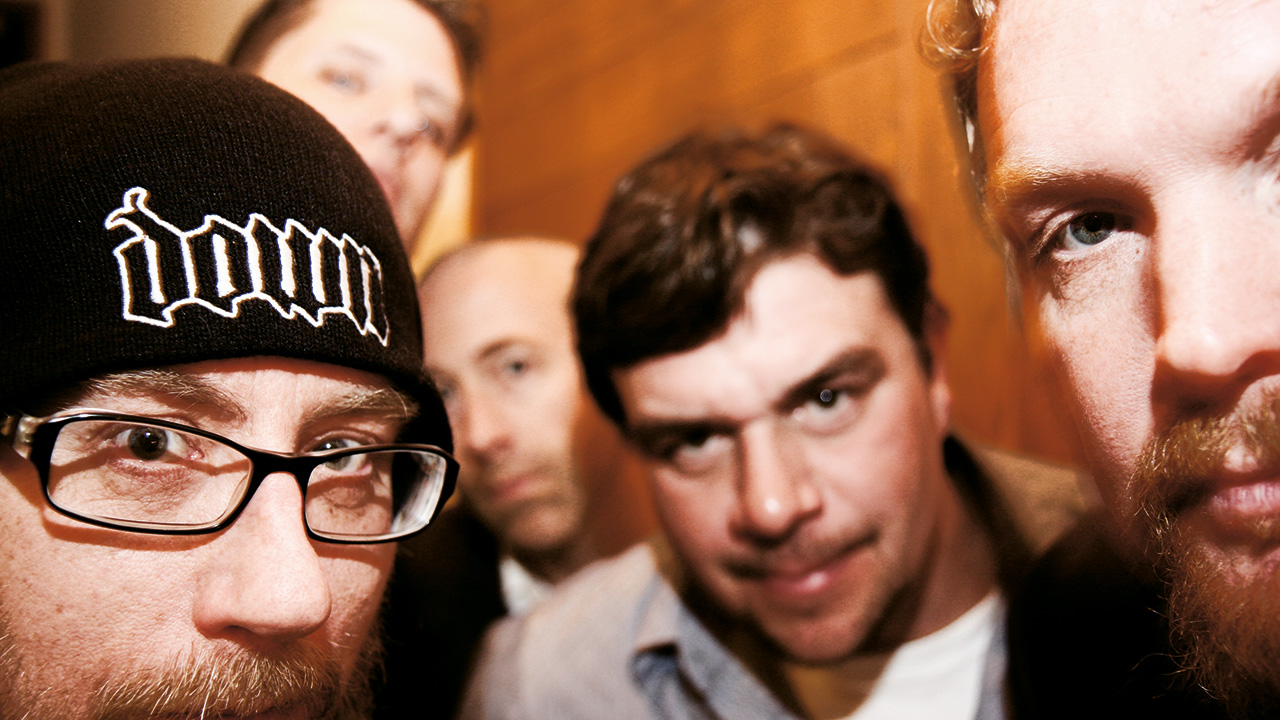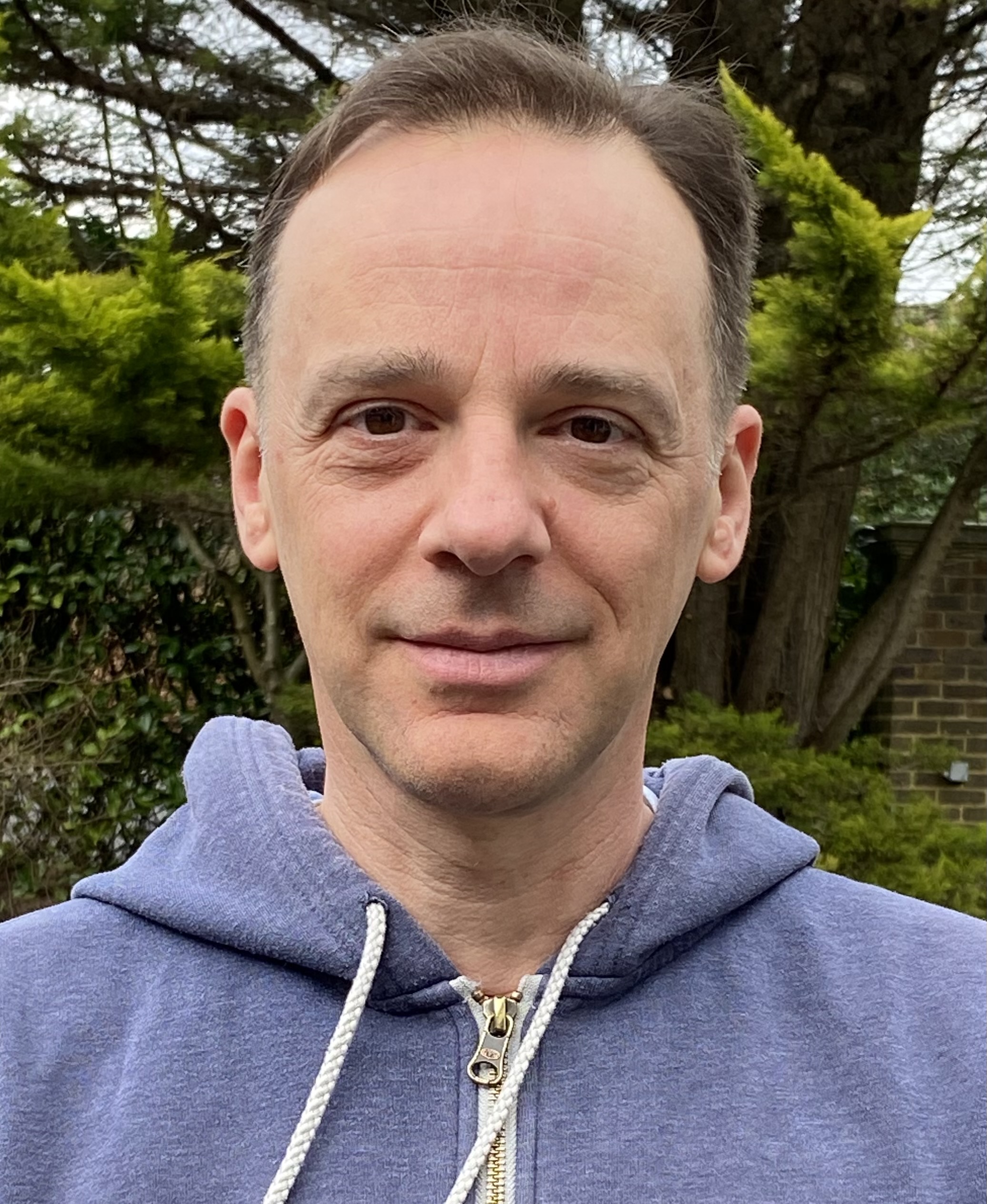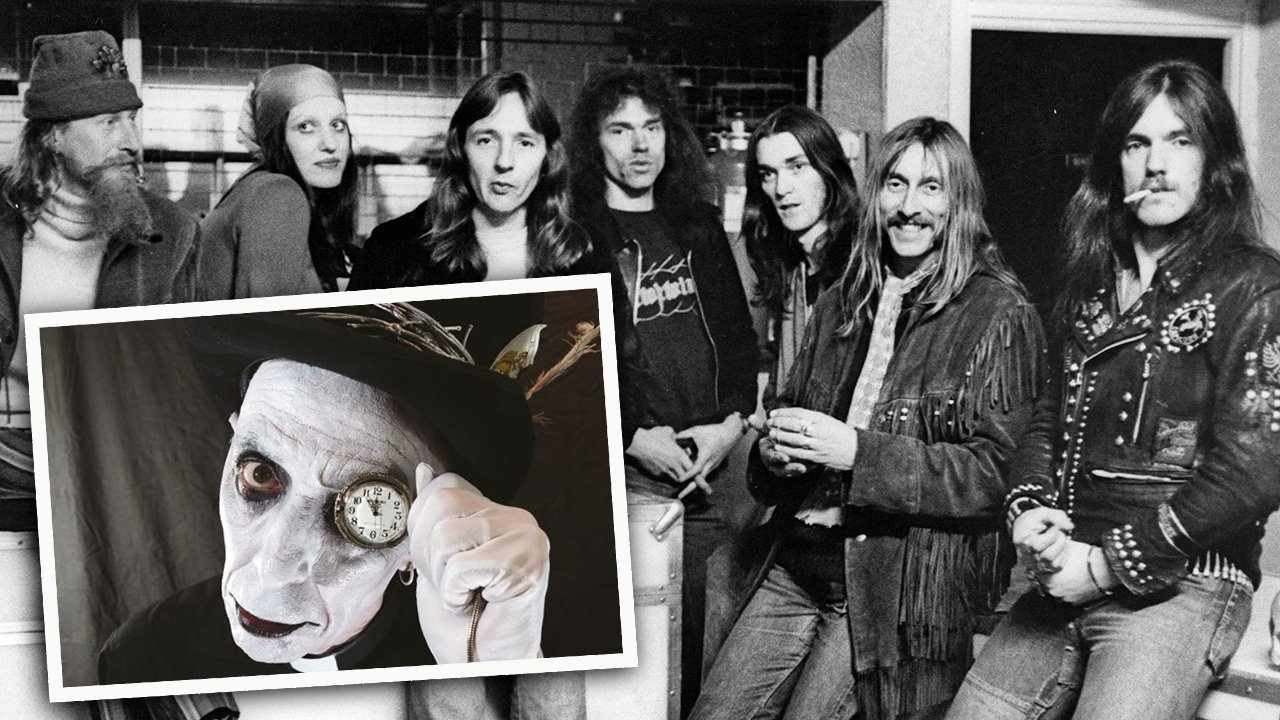“Many prog bands hire a singer who’ll just rely on their chops… we’re one of those bands who can actually sing”: Echolyn didn’t kill the joy with their second self-titled album
2012 release from the mainly part-time band is a prime example of five friends surviving industry pressure to do things their way

When Echolyn released their second self-titled album in 2012, the band felt secure as a part-time unit who’d get together when it suited them and no one else. That year guitarist Brett Kull told Prog about the difficult experiences – including a five-year split – which brought them to that security.
After to the heady days of the 1970s and the following decade – when the likes of Yes and Genesis reinvented themselves for more mainstream audiences – major record labels and progressive rock bands have made uneasy and only occasional bedfellows. Pennsylvania quintet Echolyn were signed by the mighty Sony in the early 1990s… with predictably disappointing results. Twenty years later they have survived to tell the tale, remarkably still with the same line-up who played on their eponymous 1991 debut.
But band life wasn’t always hunky dory. Off the back of a mixed experience with Sony for their third album, 1995’s As The World, Echolyn fragmented into two sub-units. “We needed a break from each other, to re-evaluate what we were doing,” guitarist Brett Kull says of the experience that could have spelled the end of the five friends’ musical career.
Keyboardist Chris Buzby went into teaching, and led jazz fusion ensemble Finneus Gauge through two albums; Kull, drummer Paul Ramsey and vocalist Ray Weston formed a trio called Still (later named Always Almost) and released two albums; and bassist Tom Hyatt stepped away from music entirely.
By 1999, however, Echolyn had reunited, spurred on by the strong bond between its members, and the continuing interest in the band – with no small debt to the internet. To describe the band as prolific would be hyperbolic, but a four-album run started with 2000’s Cowboy Poems Free, leading up to this summer’s eponymous new double album. (Confusingly, and with a nod perhaps to Peter Gabriel, it’s the band’s second self-titled album.)
So how did they keep it together? Kull believes their level-headedness and self-criticism are two key elements. Also, his own attitude has been influenced by his work with former It Bites singer/guitarist Francis Dunnery, with whom he toured in Dunnery’s New Progressives outfit. “I’ve worked with a lot of talented people over the years. Francis has taught me a lot – that you have to be critical of what you’re doing when you’re creating things. You have to be able to step back and analyse.”
Kull is the now the only full-time musician within Echolyn, running his own studio, Area 602, and teaching in a couple of local colleges. But when creativity hits, the band convenes. “We’re one of those bands that does things if we’re inspired – looking for that creativity that warrants recording.”
Sign up below to get the latest from Prog, plus exclusive special offers, direct to your inbox!
“We’re trying to get closer to writing a good song, whatever that may be,” Kull chuckles,” just trying to strip away more and more fat and find out how to get better at writing. When you look back on your old stuff it seems very youthful and pretentious. You just refine your craft, and that keeps us coming back and trying these things.”
For all the downsizing that Kull advocates, some of the material on echolyn (their newer self-titled disc uses no capital letters in the name to make it easier to distinguish) embraces the opposite, with Some Memorial and Speaking In Lampblack both exceeding 10 minutes. “Yeah,” Kull concurs, “but remember, size doesn’t matter! It’s really about the structure – and a song feels right when it’s done.
“This album is a heck of a lot more simplistic at times than most of our others – although there still is a lot of complexity, but just handled a little bit differently. It’s just a little truer for me, like if you just take a lens and just turn it a little bit more and try to focus and get to the heart of what we’re trying to show. I’m not saying we have figured it out or we ever will, but that’s the journey.”
We really don’t think about Yes. I stopped listening to that stuff when I was probably 17
For newcomers, echolyn represents a perfect taster of the band playing to their strengths. It’s suffused with rich melodies, thanks to the three-pronged vocal attack of Kull, Weston and Buzby. “We’re one of those progressive rock bands who can actually sing,” Kull emphasises. “I record a lot of festivals, and I’m aware of many bands, specifically progressive rock bands, where they hire a singer who’s not in the band, or they sing really bad and just rely on their chops without getting into the vocal part. Frankly, singing is one of the hardest things to do.”
The Echolyn sound is inspired by Kull’s rockier influences, but not the 70s prog you’d expect: “My favourite band of the 70s would be Led Zeppelin. I love their energy, and albums like The Who’s Live At Leeds. Whenever I go to play a live show, I always get that energy in my head. We really don’t think about Yes. I stopped listening to that stuff when I was probably 17, even though a lot of people say that it’s in our music – which it probably is, and I think that’s a really cool compliment.” Kull is also more attuned these days to acts such as Elbow, Radiohead and Loco. “Those kinds of bands influence us a lot because of what they’re doing in songwriting, melody and rhythm.”
Where the 70s flavour does creep in is in echolyn’s conception as a vinyl double album. “This is harking back,” says Kull, “but we forget what it was like to create music based upon the limitations of vinyl. There is a time constraint. I thought about some of my favourite double albums, like Physical Graffiti: side three is laid out perfectly. It starts beautifully and ebbs and flows; but there’s time constraints. You have to think about how Zeppelin worked that in and figured it out.”
Ironically, given his enthusiasm about Echolyn’s first ever vinyl release, Kull is a strong proponent of the download era. “Back in the day when we were with Sony, we were literally making pennies per sale; but now we’re making dollars.” Going one step further, his is an unusual take on illegal downloading. “Every person that gets our music illegally will then have the option to buy our back catalogue or pass on our music to someone else illegally, and then that person will be given the opportunity too to do the same thing.
”It’s just advertising to me. When we were on Sony, they were paying big bucks to get us known all round the world. Now it’s free. I’ll definitely stand on a soapbox for it.” Kull explains. “I have absolutely no problem with it [illegal downloading] at all.”
2012 finds Echolyn plotting a steady upwards curve, but with modest ambition. “This is a hobby that has blossomed for us more than we would ever imagine. Every album that we put out sells more than the last one, and I can’t tell you how fortunate we feel.” But Kull won’t make extravagant predictions about the future. “I don’t have the faintest idea, but I know that it took a lot of work to get to this point.”
We actually like to hang out and write music together. It’s fun and I want to keep it that way
And while the band has significant potential, Kull acknowledges that everyone in the outfit has too many other commitments to focus on Echolyn full-time at this stage. There is an upside though. “One of the reasons that I think the band is as successful as it has been is because we do it for joy. I’m not saying that making music is always joyful, because it is hard work.
”But when we get together it’s because we want to get together. It’s not because we have deadlines imposed on us or anything like that. We actually like to hang out and write music together. It’s fun and I want to keep it that way.”
While Kull and Ramsey have played live extensively with a wide range of other artists over the years, Echolyn last toured Europe and America way back in 2005. But despite this lack of touring activity, they have no immediate plans to get back out on the road. “We get invited all the time,” says Kull. “We just got offered a gig this fall over in Rome at a festival but we’re going to have to turn it down because we can’t find the time to do it, and we know it takes a lot of work to get back up to that level of playing. I don’t want to go out and suck!”
Nick Shilton has written extensively for Prog since its launch in 2009 and prior to that freelanced for various music magazines including Classic Rock. Since 2019 he has also run Kingmaker Publishing, which to date has published two acclaimed biographies of Genesis as well as Marillion keyboardist Mark Kelly’s autobiography, and Kingmaker Management (looking after the careers of various bands including Big Big Train). Nick started his career as a finance lawyer in London and Paris before founding a leading international recruitment business and has previously also run a record label.



